15 Safe Sleep Tips For baby
Follow these recommendations from the American Academy of Pediatrics to keep your baby safe whenever and wherever baby’s sleeping
See also: What’s New with Safe Infant Sleep?
Safe Sleep Tips For Baby
1. Babies should sleep on their backs, starting from birth, every time they sleep. Swaddling is calming; make sure to do it properly. Don’t use wedges or positioners.
2. Use a firm sleep surface for baby in a safety-approved crib, bassinet or playard. Bedside or “sidecar” sleepers that are government safety-approved are an option.
3. Share your room—not your bed—with baby. Some babies are especially at risk when they share beds with others. This list includes babies who are less than 4 months old, babies born premature or of low birth weight, babies born to moms who smoked during pregnancy, bed-sharing with anyone who smokes or has taken sedating medications or alcohol, and bed-sharing with non-parent caregivers or siblings/other children. Sleeping with baby on a couch or recliner is dangerous.
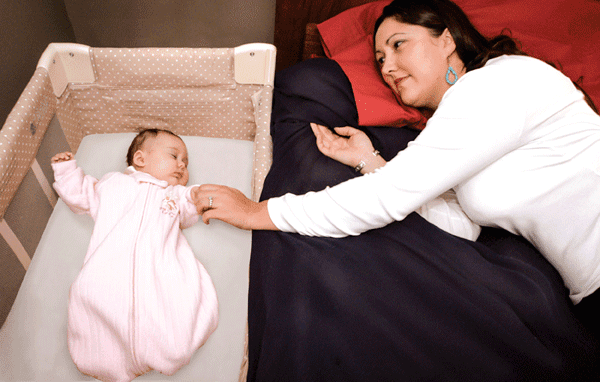

4. Breastfeeding is protective! Giving baby only breastmilk for the first 6 months is best, but any amount of breastmilk helps protect against Sudden Infant Death Syndrome (SIDS). When feeding baby at night, an adult bed with no blankets or pillows is considered safer than on a couch or recliner.
SEE ALSO: Breastfeeding Success in the Early Days
5. Keep all soft objects out of the crib or basinet, including blankets, pillows, bumper pads or stuffed toys. Dress baby in blanket sleepers or a swaddle sack for warmth.
6. Offer baby a pacifier—it’s protective against SIDS! Wait until breastfeeding is going well (3-4 weeks) to introduce the pacifier and don’t hang it around baby’s neck or attach it to clothes. No need to reinsert if it falls out.
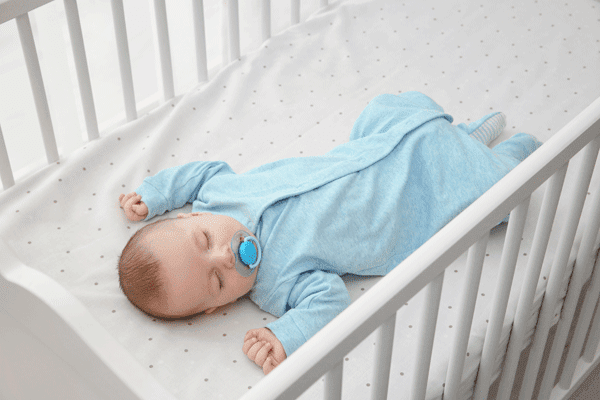

7. Let baby breathe clean air. Smoke of any kind around baby in the house or car is a major risk for SIDS. This includes tobacco and marijuana smoked in cigarettes, cigars or vaped.
8. Don’t expose baby to alcohol, marijuana or street drugs during pregnancy and after birth. The risk of SIDS increases when mom uses any of these during pregnancy or, after baby is born, if either parent is using and sleeping with baby.
9. Don’t overheat baby. Keep room temperature comfortable for an adult and don’t dress baby in more than one additional layer to what you’re wearing. Don’t cover baby’s face or head for sleeping.
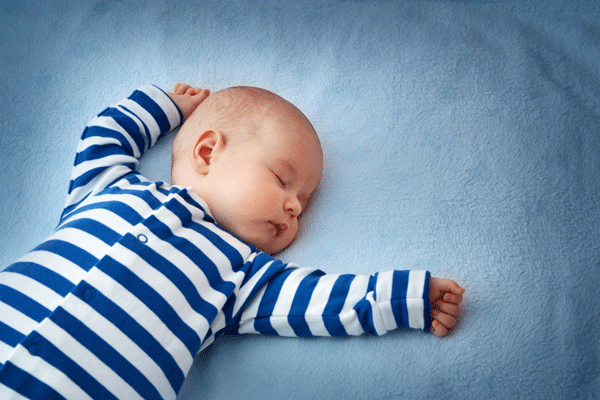

10. Get regular prenatal care. Going to your visits means your baby will have a lower risk for SIDS.
11. Immunizations are protective! Attend all well-baby checks and follow guidelines for baby’s vaccinations.
12. Avoid monitors or devices marketed to reduce the risk of SIDS—their claims may not be supported by evidence.
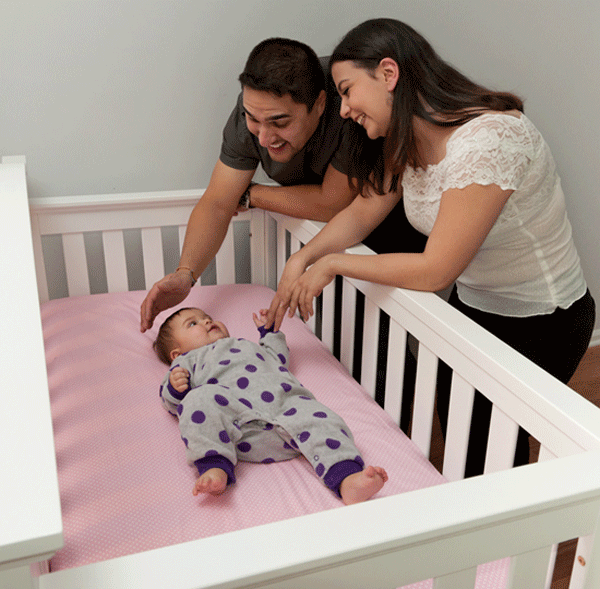

13. Don’t let baby routinely sleep in sitting and carrying devices such as car seats, strollers, swings, bouncers, carriers or slings. Babies under 4 months are especially at risk to suffocate in these situations.
14. Provide lots of “tummy time” when baby is awake and supervised. This helps prevent flat spots on the head and promotes normal shoulder and neck development
15. Educate everyone who cares for baby about these safe sleep rules, including grandparents, relatives, babysitters, siblings and friends
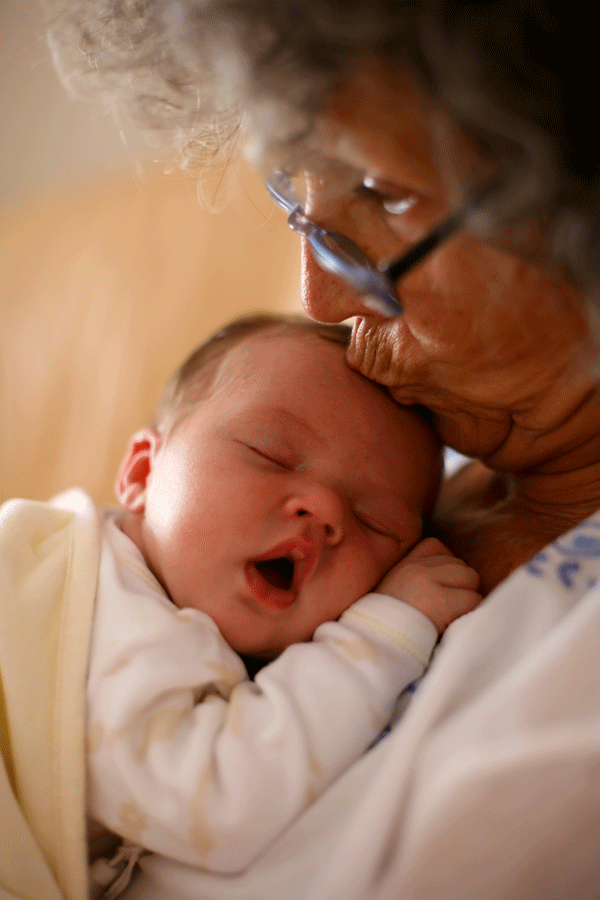

See also: Sleep More to Lose Weight
Now you have completed our 15 Safe Sleep Tips for Baby, do also read our Newborn Care section for many more articles on the care of your baby, another good section to head for is Safety & Childproofing and we also have a Diapering section that is sponsored by Huggies.
By Sharon C. Hitchcock, DNP, RN-C and Melanie Welch, MSN, RN
RELATED TOPICS:
Caregivers & Your Baby’s Safe Sleep
Crib Safety: Safer Sleep for Babies
Keep Your Baby Close While Sleeping
Buying The Right Crib For Baby
RELATED VIDEOS:
What is the Best Way to Swaddle My Baby?
When will my baby sleep through the night?
What are the ABC’s of safe sleep for my baby?
Sharon C. Hitchcock, DNP, RN-C is a clinical assistant professor at the University of Arizona College of Nursing and an expert nurse adviser to Healthy Mom&Baby. Melanie Welch, MSN, RN is a clinical instructor at the University of Arizona College of Nursing and childbirth educator at St. Joseph’s Hospital in Tucson, Arizona.





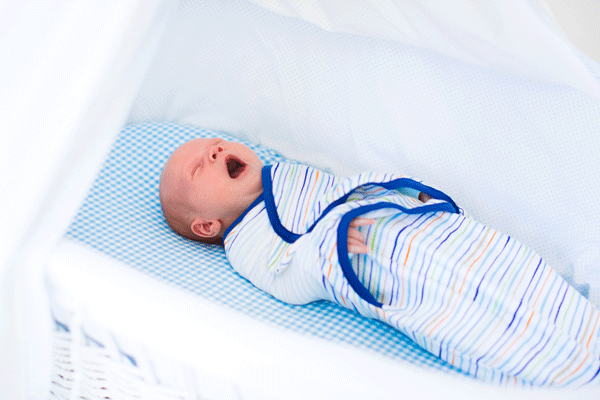
Comments are closed.